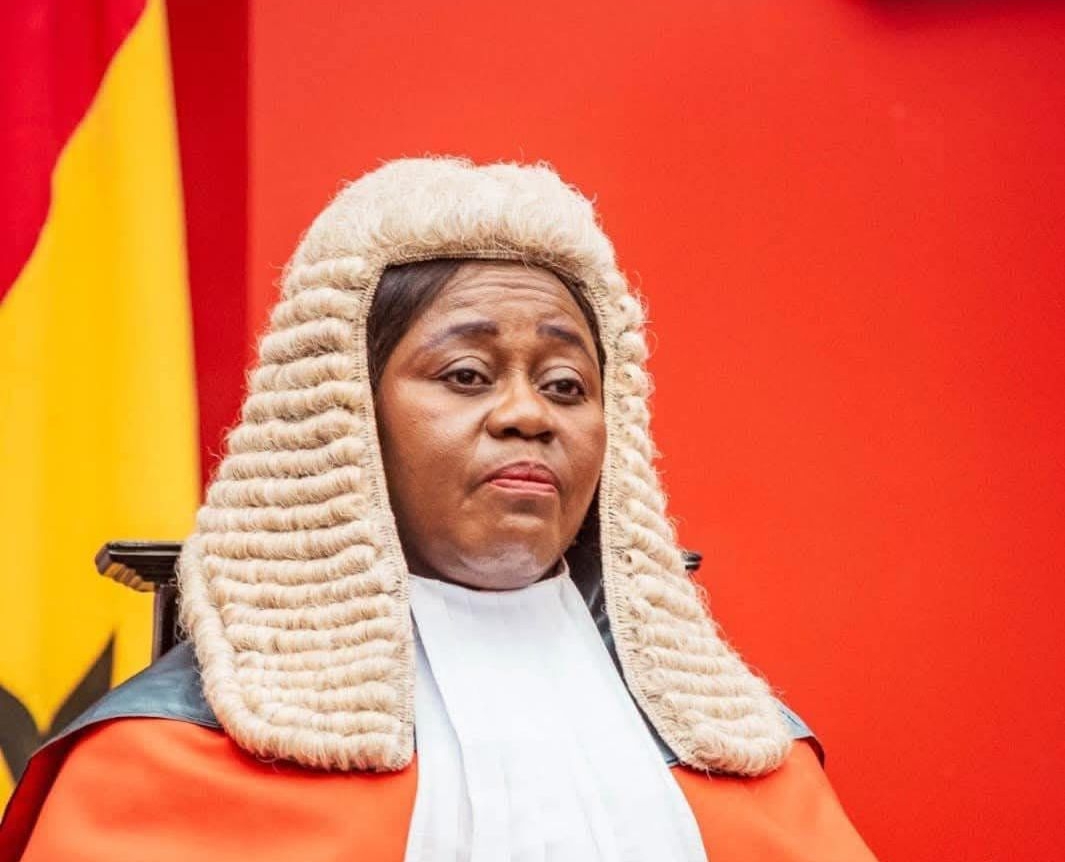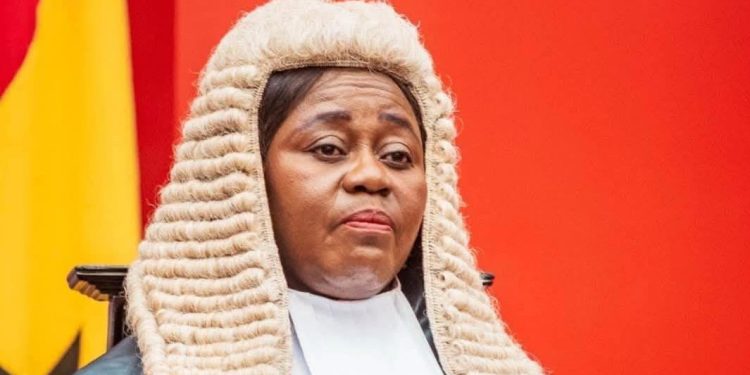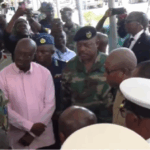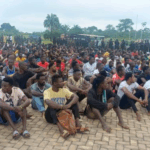
I am not a lawyer or a politician. I am an engineer working in the mining industry. I don’t know the law and so I should not be held in contempt. I study my slopes, geological structures, weaknesses in rock masses, measure stress points, and ensure every load-bearing element can do its job, etc. The goal is simple: prevent collapse before it happens – not after.
For many of us engineers, one thing is clear: when a structure’s internal support is compromised, it may look stable but it cannot carry weight. We test how much weight a system can carry before it cracks or fails.
Being a layman and a non-legal expert, I understand that any system, even one made of laws and people, can fail if internal pressure is ignored. Whether in rock masses or legal systems, the principle is the same: when the structural fabric fractures, the entire system becomes unstable.
In a democracy, justice is meant to be consistent, quiet, and unshaken – even when leaders come and go. But what happens when the leader of the judiciary is suspended, challenged, defended, and later reinstated?
What happens to the system when the interruption is purely procedural, guided by due process and institutional integrity? And what happens when it transcends into the personal, political, and public realms? The moment becomes more than a legal episode – it becomes a test of institutional strength, transparency, and renewal.
With the recent news of the suspended Chief Justice – CJ, coupled with the CJ’s and other individuals and groups seeking court injunctions and the call for her return to office, I see the warning signs – not just politically, but structurally. I view the whole thing not just as a set of courtrooms and robes, but as a constitutional structure under tension.
Ghana’s Constitution gives a clear process for suspending a Chief Justice. If a petition is filed and the President sees a valid reason, a legal process begins. This involves a committee or tribunal, and no one, not even the media brouhaha, can change that process.
President Mahama did not violate the Constitution by suspending the Chief Justice – because he followed the proper constitutional process under Article 146 – a known fact to Ghanaians. Unfortunately, the same or similar petition was previously submitted to President Akufo-Addo, who declined to act, citing a lack of merit or procedural clarity.
Now, with a new administration, President Mahama chooses to act on it – and that raises political eyebrows. To critics, it is a political payback – the suspended CJ might have ruled against certain opposition interests, is now being removed under a new government. To supporters, it is a delayed accountability – a past wrong finally being addressed.
In exploring my layperson’s view on some legal theories in pursuit of President Mahama’s invoking the constitutional mandate, it led me to the CJ’s popular mantra “the law is the law”. The Law is the Law hold on to the so-called “Legal Positivism” which asserts that the law must be applied as written, not from morality or political sentiment. Enactment stems from proper authority and procedure, irrespective of moral considerations.
For the positivist, the Constitution is supreme, and no judge or court may go beyond it in pursuit of justice. My understanding is that “if it is written in the law books or signed by Parliament, then that’s the rule – no matter what I think about it”. “And even if the law is unfair or foolish, I still have to obey it, or I’ll get in trouble”. “It doesn’t matter if I agree with it or not – the police or judge will still use it”. People in power make the laws, and we ordinary people follow them.
Let’s be honest – we live in a democracy, and in every democracy, public opinion matters. Media coverage, civic discussions, and even social media can shine a light on what’s going on behind the scenes. If people begin to believe that the Chief Justice is being unfairly targeted – maybe for political reasons or personal scores – then the public can start asking hard questions. And when people ask these questions loudly enough, it can influence the pace, tone, and seriousness of how the legal process unfolds.
Again, this then led me to when we ought to be realistic; the law is not just what’s written in books, but how it is actually applied by judges and influenced by society. The realistic law is Legal Realism and seeks to focus on practical implications and context and it doesn’t matter what’s written in the law – what matters is how it’s actually used.
Interpretating this can be broad, but common interpretation is “a rich man and a poor man will not be treated the same – even under the same law.” “A poor man gets jailed for petty theft, but politicians walk free after corruption”. However, we ought to know that judges and police officers are human and they can be biased, lenient or influenced. This is where sometimes the law is bent or interpreted depending on who is involved.
Let’s face it – in any democratic society, the judiciary is the last hope of the people. When all else fails – when politics becomes too partisan, when institutions bend under pressure – the courts are expected to stand firm, stand tall, and stand neutral. But in Ghana today, that expectation is being tested like never before.
Legally, the Chief Justice’s suspension was challenged. Constitutionally, her return may be valid, provided things go well for her. However, given that groups aligned with opposition political forces are challenging her suspension, and her injunction attempt was aligned with their arguments, her return might make her appear more politically backed than judicially vindicated.
Most concerning is the Chief Justice’s recent press conference, where she appeared to draw a historical parallel between the current government and the military regime tied to the 1982 abduction and killing of judges. This statement – whether rhetorical, emotional, or political – crosses a line many Ghanaians never expected a Chief Justice to cross publicly.
That judicial murder case is one of Ghana’s darkest legal memories – a scar in our national conscience. By drawing a connection between today’s executive leadership and a regime linked to what is perceived as judicial brutality, the CJ may have shifted her image, from an embattled Chief Justice or judge defending her record, to a perceived combatant in a political and historical battle.
The issue now is that the return of the CJ may not unite the court but leaves it functioning under quiet strain. When she returns, she must work side by side with justices who sat on or endorsed the rejection of her own legal team’s injunctions, and not in silence or suspicion.
We, the public, must trust that rulings are based on law – not loyalties or legacies and Ghana must believe that the court still stands above politics. Even if all judges remain professional, mutual confidence and free collaboration could be strained.
Tension in internal court deliberations, leadership meetings, or judicial reforms may emerge – silently or openly. The law alone cannot repair trust; this could weaken her moral authority to lead – even if she holds the position constitutionally. Leadership is not just about legal power – it is about credibility in the eyes of colleagues and citizens.
In our democracy, the law must be respected – but it must also be trusted. And trust is built in the open, not behind closed doors. Ghana’s legal system should be the last institution untouched by political winds. But when leadership is caught between petitions, politics, and public suspicion, the judiciary can go from being a symbol of fairness to a fault line of division.
If the CJ’s return raises more questions than answers – especially about neutrality, collaboration, and justice – then public confidence suffers, no matter how sound the legal arguments may be. If the return of the CJ brings more division than unity, more doubt than confidence, then we must ask: are we protecting the person, or the institution?
In mining, we do not ignore early warning signs. We reinforce, we retreat, or we redesign. I reiterate that in my work, I study fractures, faults and stress in slopes and rock masses. If the wrong pressure builds up in the wrong place, even the strongest wall can give way. And often, it is not a dramatic collapse – it is a slow, creeping failure that starts deep inside.
Ghana’s judiciary is under enormous stress – and the return of a suspended Chief Justice, however legal, may place that system under even more strain.
–
By Dr. Musah Abdulai
Ghanaian-Australian-based Geotechnical Engineer and Researcher, Believer in Systems that Hold Both in Rock and in Justice.
DISCLAIMER: The Views, Comments, Opinions, Contributions and Statements made by Readers and Contributors on this platform do not necessarily represent the views or policy of Multimedia Group Limited.
DISCLAIMER: The Views, Comments, Opinions, Contributions and Statements made by Readers and Contributors on this platform do not necessarily represent the views or policy of Multimedia Group Limited.
- President Commissions 36.5 Million Dollars Hospital In The Tain District
- You Will Not Go Free For Killing An Hard Working MP – Akufo-Addo To MP’s Killer
- I Will Lead You To Victory – Ato Forson Assures NDC Supporters
Visit Our Social Media for More




